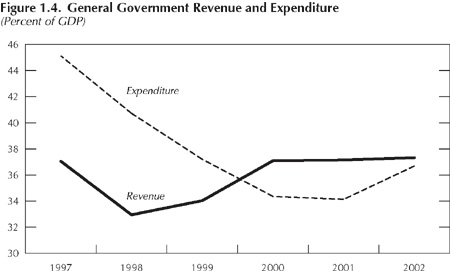Imf Iceland Crisis
crisis iceland wallpaperIcelands Financial Crisis and Its Causes. The banks collapse sent foreign investors out of Iceland.
 Pin By Roberta Mosenfelder On Mapas Vikings Map Viking Culture
Pin By Roberta Mosenfelder On Mapas Vikings Map Viking Culture
Iceland to be land suffered more than most.

Imf iceland crisis. Exogenous Shocks Facility Pakistan loan IMF and social safety nets gains against poverty in jeopardy commodity prices slump Latin America withstands shocks Improved policies help Latin America Asian Regional Outlook Bosnia and Herzegovina news briefs. Do you want to know the best tour companies in Iceland. This is where the story that Iceland broke all the.
In October 2008 Iceland nationalized its three largest banks. IMF Executive Board agrees 21 billion loan for Iceland. Kaupthing Icelands biggest bank in 2008 operated aggressively on the international stage.
That sent the krona down 50 percent in one week. Importantly however social benefits were safeguarded. INTERNATIONAL MONETARY FUND IMF Iceland financial crisis is the property of its rightful owner.
Jon Danielsson Ragnar Arnason 14 November 2011 The IMF has emerged from the global crisis bigger and more powerful. If yes this is the perfect place. Global financial crisis Iceland Poul Thomsen IMF work program IMF Shocks Facility Kyrgyz Republic.
To make this guide complete weve asked 3 of Icelands most reputable guides so that we can tell you the best tour companies in Iceland in 2020. The PowerPoint PPT presentation. This year Iceland will become the first 2008-10 crisis country in Europe to surpass its pre-crisis peak of economic output.
When the crisis hit the economy Kaupthing was struggling. Program aims to restore confidence in the Icelandic króna. Iceland also had a low debt ratio going into the crisis.
Following the global financial crisis Icelands banking sector collapsed leading to widespread unemployment. Well also tell you the best tours that these companies offer so you can choose the. Instead they are akin to the draconian controls common in the 1950s.
The Icelandic financial crisis was a major economic and political event in Iceland that involved the default of all three of the countrys major privately owned commercial banks in late 2008 following their difficulties in refinancing their short-term debt and a run on deposits in the Netherlands and the United Kingdom. The International Monetary Fund IMF agreed to lend Iceland the funds it needed to support its rapidly falling currency and to permit international money transfers to return to normal after Icelands financial collapse in October 2008. Iceland did embark on a path of financial consolidation in 2009 after a bailout by the IMF shortly after the crisis.
In all Iceland got 46 billion with 21 billion of that coming from the IMF and the other 25 billion from its Scandinavian neighbors. That was just the spark that lit the fire Thorvaldur Gylfason Following the bailout the IMF orchestrated a cleanup operation to revive the banks. T he financial crisis now engulfing the world claimed Icelandwhich has a population of just 300000as one of its early victims.
Iceland which the IMF estimates was the worlds third-richest nation per capita in 2005 before slumping to rank 20th by 2010 ended its 33-month program in August last year. The crisis was triggered when the three major Icelandic banks were unable to refinance their credits in the international money markets espe-cially following the failure of Lehman Brothers. Iceland and the Global Financial Crisis 2007-2011 The global financial crisis in 2007 was an economic depression when banks took major risks to invest in businesses.
CLOSING CASE The IMF and Icelands Economic Recovery When the global financial crisis hit in 2008 tiny lce- up the price of imports and inflation soared to 18 pe cent. Official bilateral creditors also expected to help. The countrys three big appeared in free fall.
Kaupthing Bank Landsbanki and Glitnir Bank had defaulted on 62 billion of foreign debt according to Thomson Reuters data. To take stock of Icelands crisis and recovery the IMF and the Icelandic government are co-hosting a conference on October 27 that will see prominent economists such as Nobel Prize winner Paul Krugman and international economists Willem Buiter and Simon Johnson debate civil society academics and IMF officials on whether the lessons learned can be applied elsewhere. Taxes were increased particularly on higher incomes spending reduction reforms were made in health and education and public sector pay was cut.
Before the crisis the bank had a strong British customer base with at least 3 billion pounds Bowers deposited in its UK subsidiary Kaupthing Singer Friedlander KSF in 2008. Other financial institutions had to give money to banks to bail them out of debts. But this column argues that the capital controls it required Iceland to adopt in 2008 are not of the soft and cuddly modern type that slow hot money flows.
In all Iceland got 46 billion 21 billion from the IMF and 25 billion from its Scandinavian neighbors The collapse of banks in Iceland had little to do with Lehman Brothers. The key differentiating factors supporting Icelands relatively strong recovery are worthy of further study but rapid external adjustment through depreciation and limited government absorption of private financial sector debt were likely important factors. Today well take a look at the best tour companies in Iceland.

